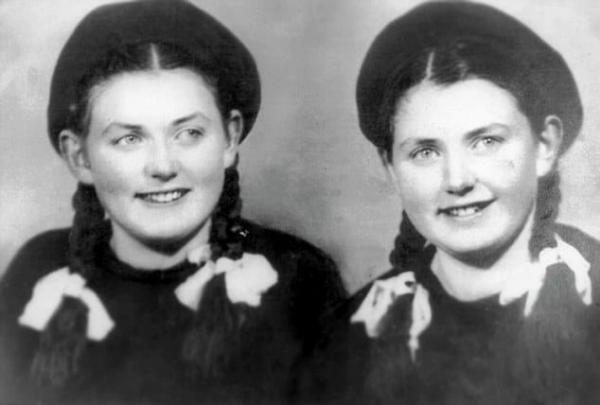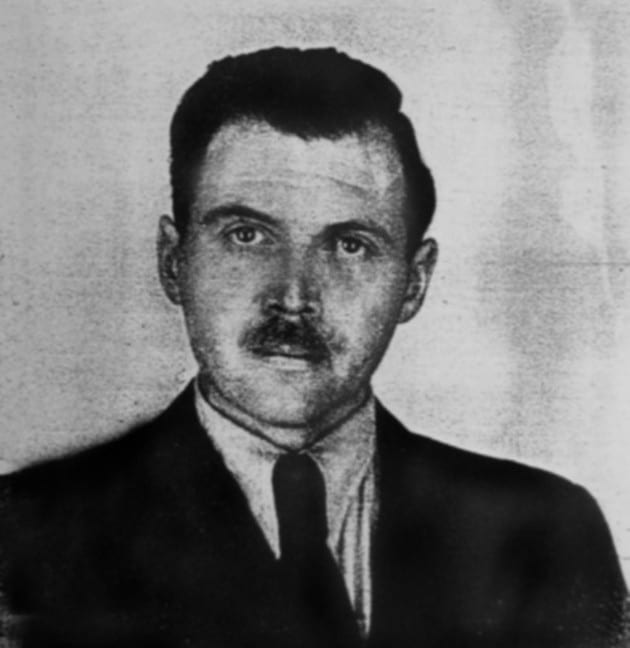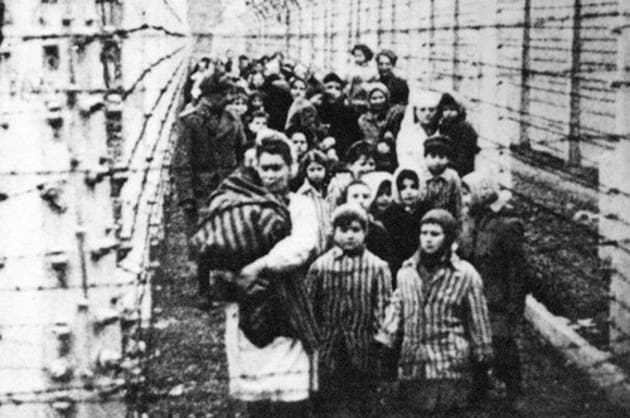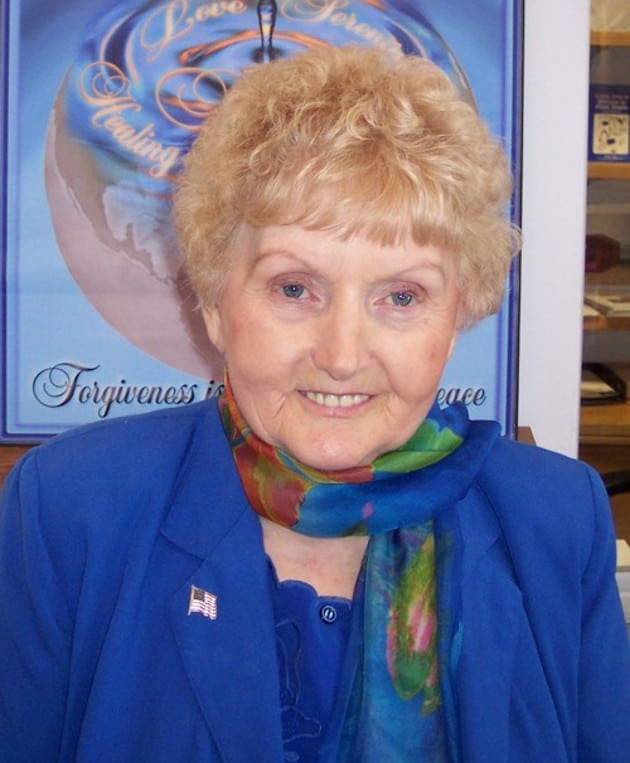
As soon as her feet hit the ground, she turned around to figure what this place was. She had never seen a place like this before. It was in that moment she realized it - her dad and two older sisters were gone.
She never saw them again
That is how Eva Mozes Kor started her horrifying journey through Auschwitz. She was 10 years old. Moments after she realized her sisters and dad were gone, she and her twin sister were pulled from their mother.
"We were crying, she was crying," Eva said in an interview. "All I ever remember is seeing my mother's arms stretched out in despair as she was pulled away. I never even said goodbye to her, but I did not understand that this would be the last time that we would see her and all it took was 30 minutes from the time we got down from the cattle car and my whole family was gone. Only Miriam and I were left holding hands and crying."
Eva and her twin, Miriam, became Mengele twins, which means they were under the supervision of Dr. Josef Mengele. He was also known as "The Angel of Death."
Mengele performed brutal live surgeries and experiments on his patients. One of the brutalities for Eva and Miriam was being injected with several substances. To this day, they don't know what was put into their body, but it made Eva so sick Mengele laughingly said she only had two weeks to live.
Josef Mengele. / photo credit: wikimedia
But Eva defied the odds and survived. During that time, Miriam underwent many other experiments. It was a miracle they survived.
By the time Auschwitz was liberated in 1945, only a few of the Mengele twins had survived.
Eva and Miriam dealt with the physical consequences of the experiments all their life, according to Auschwitz.dk. As an adult, Eva had miscarriages and tuberculosis. Her son also had cancer. And it wasn't until Miriam was having children that they discovered her kidneys had never grown larger than a 10-year-old's kidneys. When she went into kidney failure, Eva gave her a kidney. But in 1993, Miriam died of a rare disease that likely came from Mengele's experiments.
But this is not a story of the unspeakable horrors Mengele did. It's a story of how a victim - even a victim of the worst horrors one can imagine - can come out triumphant.
Eva and Miriam are pictured here in the front when Auschwitz was liberated. / photo credit: wikimedia
In August 1993, Eva went to the home of Nazi soldier. Her purpose was to get a signed document to say that he, a Nazi guard, had witnessed the horrors of Auschwitz with his own eyes.
"I [would] have an original document signed by a Nazi, and if I ever met a revisionist who said the Holocaust didn't happen, I could take that document and shove it in their face," she said.
She didn't plan to ask him questions, but they spilled out anyway. Questions about the gas chambers: did you go inside one, did you know how it operated?
The man, Dr. Munch, said, "This is the nightmare that I live with every single day of my life." His job in the camp was to observe the gas chambers and sign every single death certificate once everyone had died.
When she asked if he would sign a document, he immediately agreed.
But later, a strange thought came to Eva - she wanted to thank him for his willingness.
"I didn't know how to thank a Nazi," she said
The idea sounded crazy to her. She thought about it for months. And after 10 months of considering it, an idea popped into her head.
"How about a letter of forgiveness from me to Dr. Munch? I knew immediately he would like it and that was a meaningful gift," she said in an interview with Buzzfeed.
Eva in 2016. / photo credit: wikimedia
She started to write the letter. It took her four months, and several edits from her former English teacher. On the third and last edit, her teacher told her something that would change her life: she needed to forgive Mengele. He was the one she had a problem with - not this unknown Nazi guard.
Eva went home and wrote down 20 nasty words out of the dictionary. Then she imagined Mengele (who died from a stroke while swimming in Brazil in 1979) sitting in the room with her. She read the words out loud to make-believe Mengele. And then she said, "in spite of all that, I forgive you."
She had been the little guinea pig. For 50 decades she had been a victim who could not control what happened, but by her forgiveness she learned a powerful lesson.
"What I discovered for myself was life-changing. I discovered that I had the power to forgive. No one could give me that power, no one could take it away. It was all mine to use in any way I wished."
Many of the other Auschwitz survivors denounced Eva because of her forgiveness. But Eva said she became free - free from Auschwitz and free from Mengele.
What is forgiveness? "It is an act of self-healing, self-liberation. Self-improvement. All victims, all hurt, feel hopeless, feel helpless, feel powerless. I want everyone to remember we cannot that we cannot change what happened. That is the tragic part, but we can change how we relate to it," she said.
Only you can control your reaction
Hopefully few of us will deal with the same horrors as Eva, but everyone will be hurt by someone in their life. And, unfortunately, you can't control that. But how will you react after? Will you set yourself free with forgiveness? Eva's example makes that feel so much more possible.




